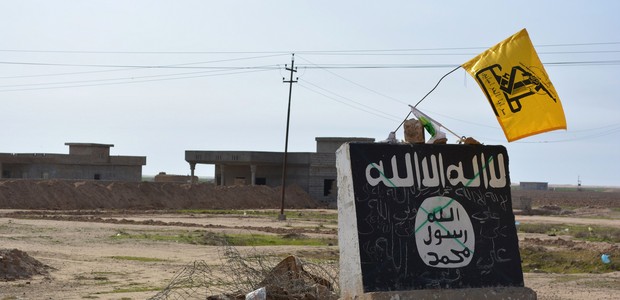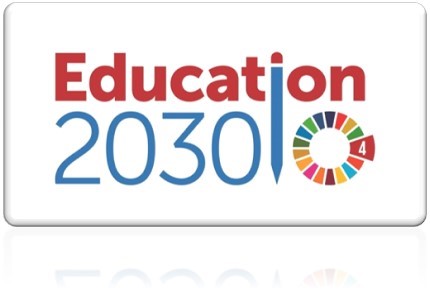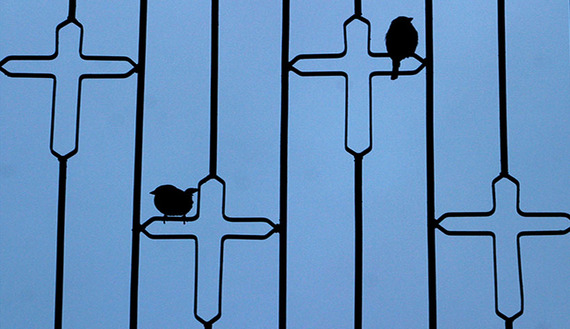Post-Daesh Problems: Diyala Province Undergoing Violent Ethnic and Sectarian Cleansing
Thanks to the security crisis caused by the extremist group known as the Daesh, the demographics of the province of Diyala are changing. The extremist group has been driven out of certain parts of the province and some of these are now controlled by Iraq’s sometimes-controversial Shiite Muslim volunteer militias while others are run by the Iraqi Kurdish military.
“Demographic changes have become a reality here,” says Raad al-Dahlaki, a Sunni Muslim MP and head of the Iraqi Parliament’s Committee on Immigration and Displacement. “There are many areas where security is extremely lax and there are violations of the law that should not be tolerated. For example certain areas have been shelled deliberately and it’s causing the mass displacement of [mostly Sunni] families.”
Al-Dahlaki believes the perpetrators of these acts are “militant gangs that pretend to be part of the volunteer militias but who are actually carrying out agendas set by foreigners”. And by this he means neighbouring Iran – many of the Shiite militias are funded or otherwise supported by the Iranian military.
“These gangs want to sow discord and change the demography of the province,” al-Dakhali argues.
Al-Dakhali believes the federal government should be doing more to stop the targeting of civilians by military groups, including the Shiite Muslim volunteers and Iraqi Kurdish troops.
“The government hasn’t done anything to stop the abuse by the Iraqi Kurdish military here, or by the militias, both of which are trying to discourage people from returning to their homes,” al-Dakhali notes. “Almost all of the kidnapping happening here now is targeting one specific population group and those who are doing these criminal acts are all working toward one goal: demographic change.”
Diyala is traditionally home to both Sunni and Shiite Muslims as well as Kurds. According to the most recent data, which is several years old, the province was just over half Sunni Muslim, with one third Shiite Muslim and the rest Kurdish.
And as the expert Iraqi website, Musings on Iraq, noted recently, Diyala has long been a battleground for the various ethnic and religious factions, including Shiite militias, Sunni groups linked with, first, Al Qaeda and then Daesh, and the Iraqi Kurdish forces here.
“The only solution to all of these problems is Article 140 of the Iraqi Constitution,” suggests Anwar Hussain, the mayor of Jalawla; Article 140 is intended to help resolve issues with Iraq’s “disputed territories”. These are areas that the Iraqi Kurdish say should belong to their semi-autonomous region but which the federal government believes belong to Iraq proper. “This would mean a referendum that would decide whether Diyala should be part of Iraqi Kurdistan or a province that is part of federal Iraq, or whether it might become an independent entity.”
In an oft repeated accusation – that the country’s Kurds are using the security crisis to advance their own ambitions for independence from Baghdad – other locals say that the Iraqi Kurdish military are taking advantage of the chaos in Diyala to try and empty certain areas of their Arab population. Jalawla is almost empty of Arabs, they point out.
“These events in Diyala are to be expected,” says Iraqi MP, Jamal al- Karbouli, a Sunni Muslim and head of the National Movement for Reform and Development, or Al Hal, party. “The events only confirm that the alliance between Iraq’s Shiites and the Iraqi Kurdish is becoming stronger. And it is going to lead to the ongoing marginalization of Sunnis, as well as their exclusion from the local government.”
“Many areas in Diyala have undergone what is best described as ethnic or sectarian cleansing,” says Wathiq al-Dulaimi, a Sunni political activist. “There have been systematic killings and retaliatory operations. For instance there’s been a major campaign to demolish houses in Jalawla and Saadia.”
Locals believe that the demographic change the province is undergoing is also linked to political games being played. The governor of the province, Amer al-Majmai, was voted out of office after being accused of corruption. Now Muthana al-Tamimi, a Diyala politician who is also a senior member of the Shiite-Muslim group, the Badr organization, is governor – he was elected to the position only a few hours after al-Majmai was expelled.
As Iraqi analyst Kirk Sowell points out in a post for the Carnegie Endowment for International Peace: “This is controversial because Diyala is, or at least has been, a majority Sunni Arab province. The 2013 provincial elections resulted in a 29-seat council with fourteen Sunni Arabs, twelve Shia, and three Kurds. The Kurds’ alliance with the main Sunni coalition allowed the election of a Sunni Arab as governor in 2013, but the war has since driven the Patriotic Union of Kurdistan, the dominant Kurdish party in northern Diyala, closer to Iran. Tamimi’s election was the fruit of this renewed Shia-Kurd alliance.”
It seems unlikely that anything will change soon in Diyala. The federal authorities are unlikely to pay any attention to the ongoing sectarian and ethnic infighting because their focus is mostly on getting rid of the extremist Daesh group and they do not seem to have a strong strategy for what to do with disrupted and insecure areas after the extremists have been driven out.





